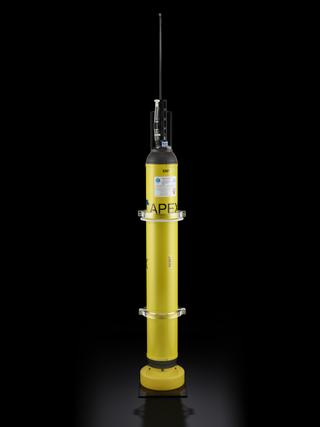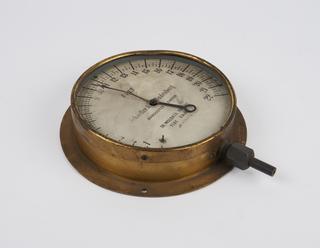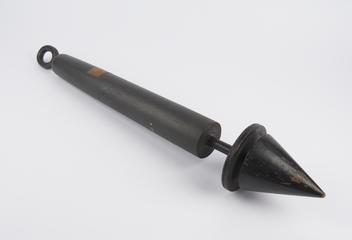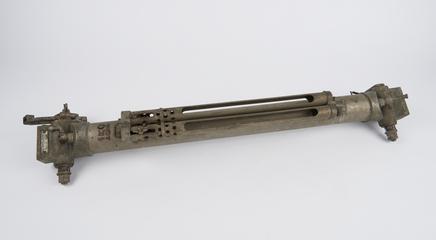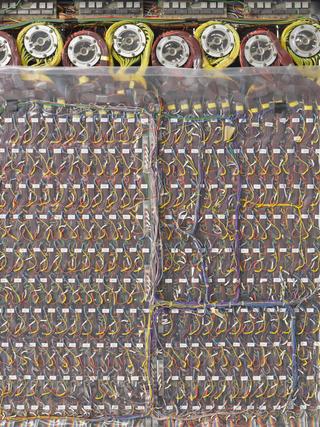
Reconstruction of insulated seawater sampling bottle designed by Captain Phipps and Dr Irving
- Made:
- 1773 (original); 1980s in United Kingdom
- maker:
- Constantine John Phipps

Reconstruction of insulated bottle for sampling seawater designed by Captain Constantine Phipps and Dr Irving in 1773 and used aboard HMS Racehorse, made in the UK, 1980s. The reconstruction shows the layers of insulation to preserve the temperature of the sample.
HMS Racehorse was one of two ships despatched on an expedition in 1773 to search for an Arctic route through to the Pacific Ocean. The expedition was sanctioned by the Admiralty and supported by the Royal Society and George III. The scientific work undertaken during the cruise was intended to resolve certain problems of navigation in high latitudes where the proximity of the Earth’s magnetic pole made compass readings unreliable. The voyage reached a latitude of 80 degrees and 48 minutes north before ice made further progress impossible.
Phipps took the opportunity during calm weather to make observations of the depth and temperature of the sea, and to measure current flow. Aware of the possible effect of pressure on the thermometer with which he had been equipped, Phipps tried an alternative method of measuring the water temperature. With the help of the ship’s surgeon, Dr Irving, he insulated a bottle by wrapping it in a series of wool, oilskin, leather and tarred canvas covers, hoping by this means to bring a sample of water to the surface without its temperature being changed on the way up. It might then be measured on deck, where the thermometer would give a reading which was not affected by pressure. The observations which he obtained by the two different methods did not coincide. Phipps had no means of telling which was correct; in hindsight we now know that his thermometer was unreliable at depth; that in the Arctic Ocean the deepest water is not always the coldest; and that Irving’s waterbottle was unlikely to have recovered water from precisely the depth intended.
Details
- Category:
- Oceanography
- Object Number:
- 1987-326
- Materials:
- cord, glass, cotton wool, hardboard, fibreglass and textile
- Measurements:
-
overall: 250 mm x x , 125 mm, 1.07kg
- type:
- insulated water bottle and replica
